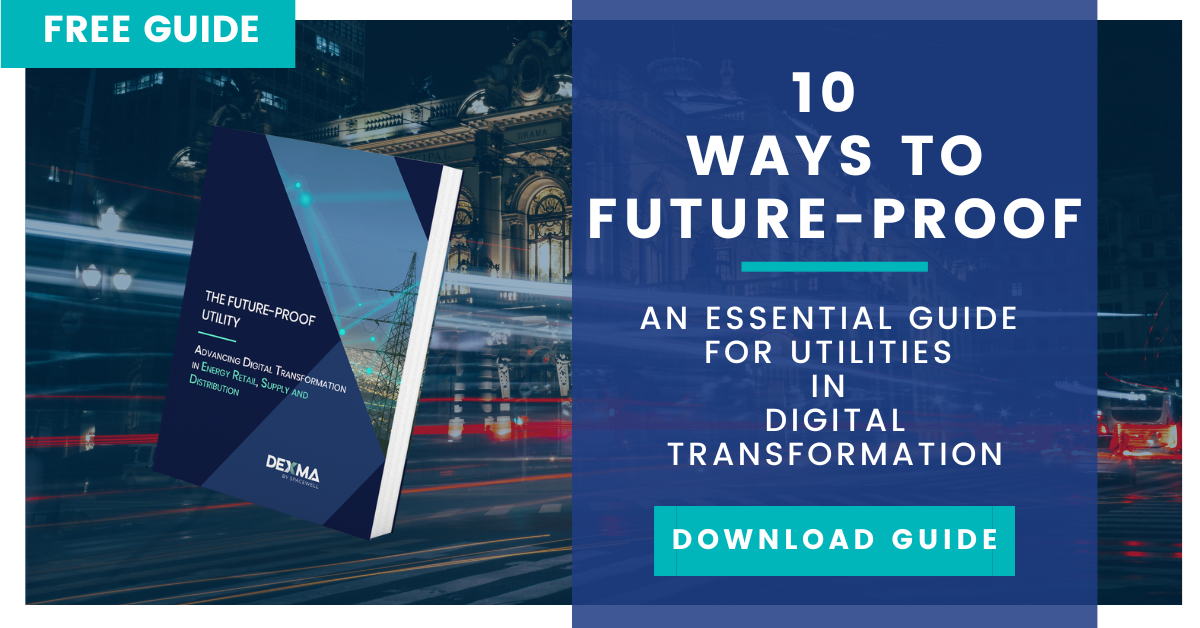With the growth of artificial intelligence technologies, new innovations are continuously emerging and surprising us. Recently, ChatGPT, an intelligent language and text generation AI, has raised questions about its use and deployment in our society. What about the metaverse? Will it become a permanent feature of our lives, and what impact will it have on the energy sector, specifically on utilities?
Although the use of metaverses is still in its early stages, it is interesting to observe how Utilities could adopt this technology and support their customers in the near future. In this article, we highlight the potential of metaverses and some of the opportunities that utilities could seize to better distinguish themselves and be adaptable in an ever-changing energy and digital world.
Definition of the Metaverse
With the technology innovation sector forging ahead, the metaverse is gradually becoming a prominent feature of the virtual digital world. In fact, some have gone so far as to call it a “virtual universe.” However, the metaverse is more specifically associated with immersive experiences. It is typically used for video games and provides the opportunity to interact in real time within a 3D virtual world with people, objects, or digital environments. This is accomplished by creating an avatar and using devices like virtual reality headsets.
Metaverse Opportunities for Utilities?
McKinsey’s report forecasts that the metaverse market will expand significantly in the coming years, reaching a value of $5,000 billion by 2030, which would make it the third-largest economy in the world. Consequently, utilities ought to accelerate their digitalisation efforts and rethink their business strategy and model to keep up with the forthcoming digital and technological transformations. If you are employed by a utility, we urge you to read on to discover how you can leverage the metaverse to your advantage.
Optimise your customers’ Energy Management
Enabling your users to interact with real-time energy consumption data can enhance their comprehension of energy usage patterns, allowing them to make informed choices regarding their energy consumption.
Let’s take the example of the industrial metaverse, already tested within the Renault group, which provides a complete visualisation of the processes and consumption of an industry. This visualisation can, among other things, help to identify potential savings areas in the production circuit or measures to be taken to improve energy efficiency.
“Every day, a billion of data are collected within the Renault Group’s industrial sites. The Metaverse provides real-time supervision that increases the agility and adaptability of industrial operations as well as the quality of production and the Supply Chain. Renault Group is becoming a pioneer in the sector.” Jose Vicente de los Mozos, EVP, Industry Group and Head of country Iberia
The Renault project is just one example of how companies can use this technology to improve efficiency and reduce costs. And it applies to many other departments of a company or its operating systems in general.
As an energy company, and through the metaverse, you would have the potential to offer innovative and immersive solutions such as the creation of simulations and virtual spaces in which your customers could interact with their electricity, water or gas consumption data.
Artificial intelligence-powered virtual energy data management has been around for a while, and leading-edge utilities are already providing their customers with intelligent and inventive solutions. The metaverse represents the logical progression in the evolution of digital energy management, given its interactive and varied immersive experience. This technology is the natural next step for digital management projects like BIM or digital twins.
Utilities have a significant responsibility in this field and should capitalise on the opportunity to lead the way in providing their customers with access to their energy data. This will not only aid them in distinguishing themselves from their competitors but also allow them to enhance their relationship with their customers, which is imperative in today’s challenging energy climate.
Adapting the Energy Offer and Improving the Customer Experience
As previously mentioned, prioritising customer relationships should be a central component of your business development strategy. Given the energy crisis and the current market climate for utilities, there has been an uptick in customers switching to other utilities. Therefore, it is critical to adjust your energy service offerings to persuade potential customers effectively.
In what ways can the metaverse help you? Consider the possibility of encountering your customers in the metaverse and having the ability to examine and analyse their energy consumption data in an engaging and personalised manner. This could be a means of showcasing and modifying your energy service offerings and could present an opportunity to experiment with tangible solutions in a virtual/alternate realm. Additionally, it could allow for a blend of immersive and imaginative experiences by enabling you to offer sensory-rich presentations of your services to better cater to your customers’ energy endeavours.
Raising awareness of the Energy Transition
Once more, with the aim of accommodating and continually enhancing your services, the metaverse can serve as a communication platform to heighten awareness of the energy transition’s challenges. By providing interactive experiences, utilities could promote their offerings regarding renewable energy and energy efficiency.
To provide a few instances, this may materialise as virtual immersions in solar power plants to enhance comprehension of how such technology operates or virtual events spearheaded by renewable energy specialists. All of these endeavours would assist in educating and increasing awareness of sustainability concerns among your customers, and encouraging them to join you in the transition towards clean energy.
Optimisation of Energy demand and distribution network
As we discussed earlier regarding the application of metaverse technology in predicting and managing energy consumption within a company or supply chain, the same principles can be applied to energy management in the production and distribution networks of utilities. The metaverse offers the potential for utilities to manage energy demand in real-time, using simulations and gathered energy data to forecast demand and adjust production in response to scenarios such as consumption peaks or unexpected events like power outages. Such models also allow utilities to be better prepared and more efficient in their overall energy management.
Metaverse: Challenges for Utilities
Energy Consumption of the Metaverse
It’s worth noting that engaging in the metaverse will come with some considerations. Apart from its capital cost and technical expertise requirements, the use of such technology will also lead to high energy consumption. This is something you should keep in mind, both for yourself and for your customers. Metaverse devices need servers and data centres to manage connections and create virtual environments, which makes them quite energy-intensive. As a result, some companies are turning to renewable energy sources to power their projects. With the metaverse expected to grow rapidly, its energy demands are likely to be considerable. It’s important to keep this in mind for your projects and your customers, who will also require a significant amount of energy.
If you’re looking to reduce energy consumption in digital network infrastructure, there are several options available. Utilising efficient devices, implementing smart solutions, monitoring energy usage, and leveraging renewable energy sources, as previously mentioned, can all help to minimise the impact on energy consumption and make the use of the metaverse more sustainable. It’s important to convey this message not only to your own infrastructure but also to your customers who are interested in engaging in digital projects like metaverses. Supporting them with new technologies and promoting energy efficiency can help you maintain a competitive edge.
Government Regulation and Data Security
Finally, we would like to highlight one last issue that is likely to become more important in the coming years: regulation and data security in the new space of the metaverse. These aspects are still not well defined and it is difficult to anticipate how utilities and other companies will be subject to standards. Thus, it is important to keep in mind that any metaverse project will require the establishment of a regulatory and legal framework commensurate with the expected challenges.
To sum up, the metaverse has the potential to be beneficial only if it is implemented in a responsible way that promotes the sustainability and efficiency of facilities. As a utility, it is important for you to lead by example and utilise the advantages of this technology to drive your own energy transition as well as that of your customers.
Before considering the metaverse in your strategy, why not consider implementing an Intelligent Energy Management Solution? If you haven’t already, it may be worthwhile to explore and compare different solutions to find the best fit for you and your customers. Our team of experts can help you evaluate and select the most suitable solution. Contact us here to learn more.




